The IASD Dreams and Ethnicity Portal is offered by the IASD Diversity Task Force Advisory Committee (DAC) to encourage further understanding of authentic, culturally diverse perspectives on dreaming, and to promote increased ethnic diversity in all IASD functions: membership and recruitment, leadership positions, conferences and symposia, dream-studies research, publications, educational outreach, and public-relations efforts to advance dreamwork and the general understanding of dreams and dreaming.
Dream painting created by Alaya Dannu
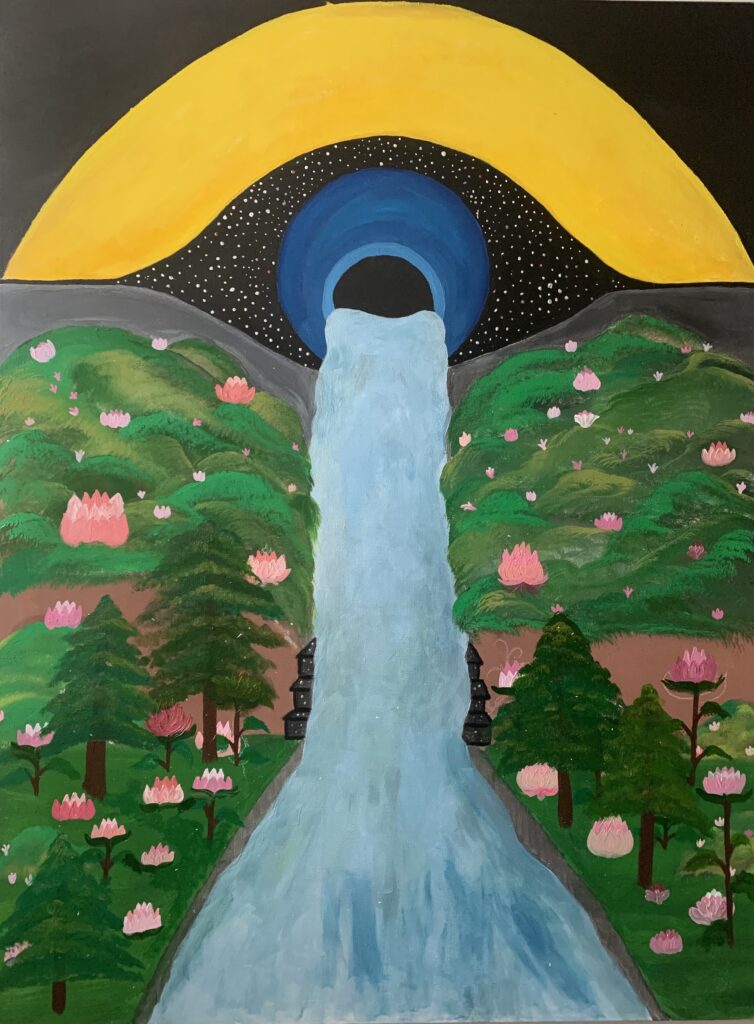
This portal includes: photos and bios of IASD’s DAC members; a “Diversity Response” contact email; resources in the form of websites, publications, podcasts; and links to Diversity-related exercises for dreamers such as the powerful and healing dream-incubation exercise Dolores Nurss has initiated in the IASD Facebook Group.
With active updates from the IASD DAC, this portal is a means to advocate for greater BIPOC representation in the organization’s positions of responsibility and leadership, to reflect the rich diversity of traditions and perspectives in dream studies worldwide, and to engage in the practical application of our Principles of Community to all of IASD’s mission and work.
This portal provides fundamental resources to inspire further research in the areas described by the new Dreams and Ethnicity track for IASD International Conferences:
The Dreams and Ethnicity track explores dreams through traditional worldviews and welcomes dreamers of all ethnicities to submit presentation proposals of high quality that reflect their experience with dreams in relation to their self-identified ethnicity. In this track, the meaning of dreams is of spiritual significance to the waking reality of human life and identity. The Dreams and Ethnicity track supports IASD’s growth within a supportive multi-ethnic environment, and brings people who have a different contribution to make to the study of dreams forward in order to open up everyone’s perspective.
IASD’s Diversity Task Force Advisory Committee (DAC)
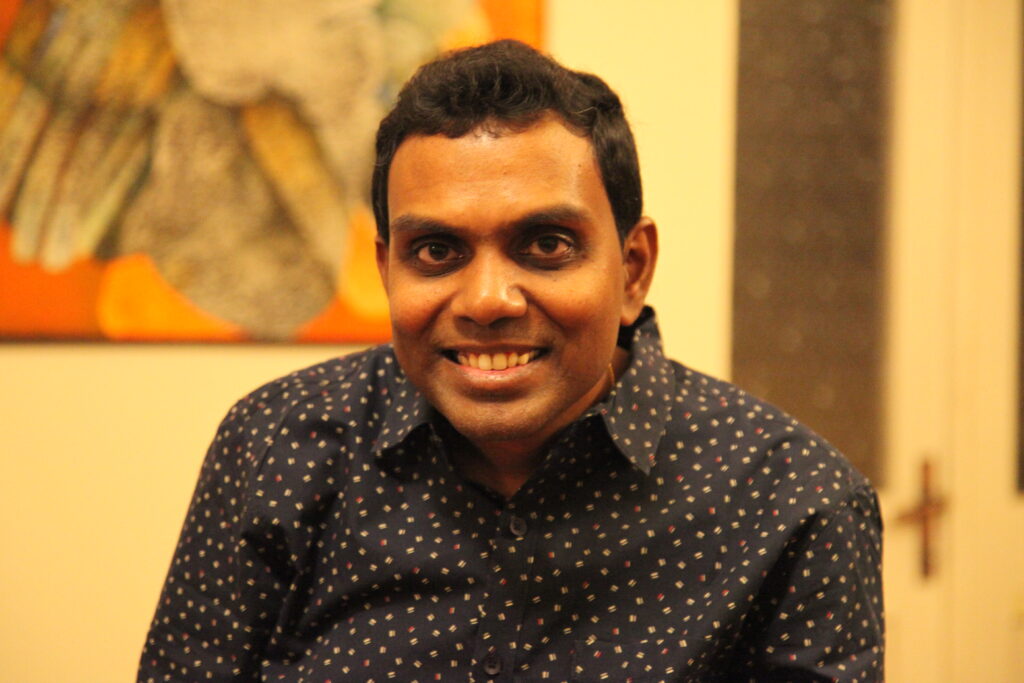
Kiran Anumalasetty
DAC Member
Kiran Anumalasetty is an IASD Board member. He is a student of Brahmarshi Chakravarthy Dr Newton Kondaveti and Trustee for NTAP (Navya Takshashila Aatmavidya Peetham), an educational society for spiritual sciences; a Past Life Regression and Inner Child therapist; and an authorized trainer (Acharya) with proposed Quantum Life University in India.
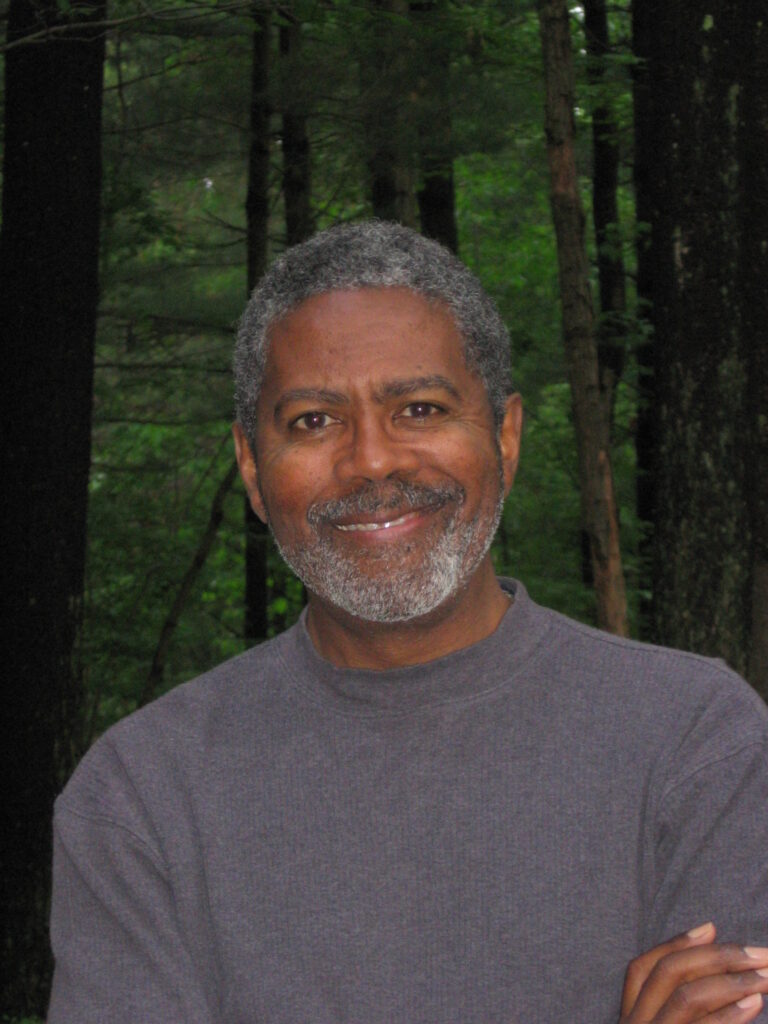
Edward Bruce Bynum
Dreams and Ethnicity track Co-Director
Edward Bruce Bynum, Ph.D., A.B.P.P., is a clinical psychologist. A student of Swami Chandrasekharanand Saraswati and a winner of the Abraham H. Maslow award from the American Psychological Association, he is the author of several books, including The Dreamlife of Families, The African Unconscious, and Dark Light Consciousness.
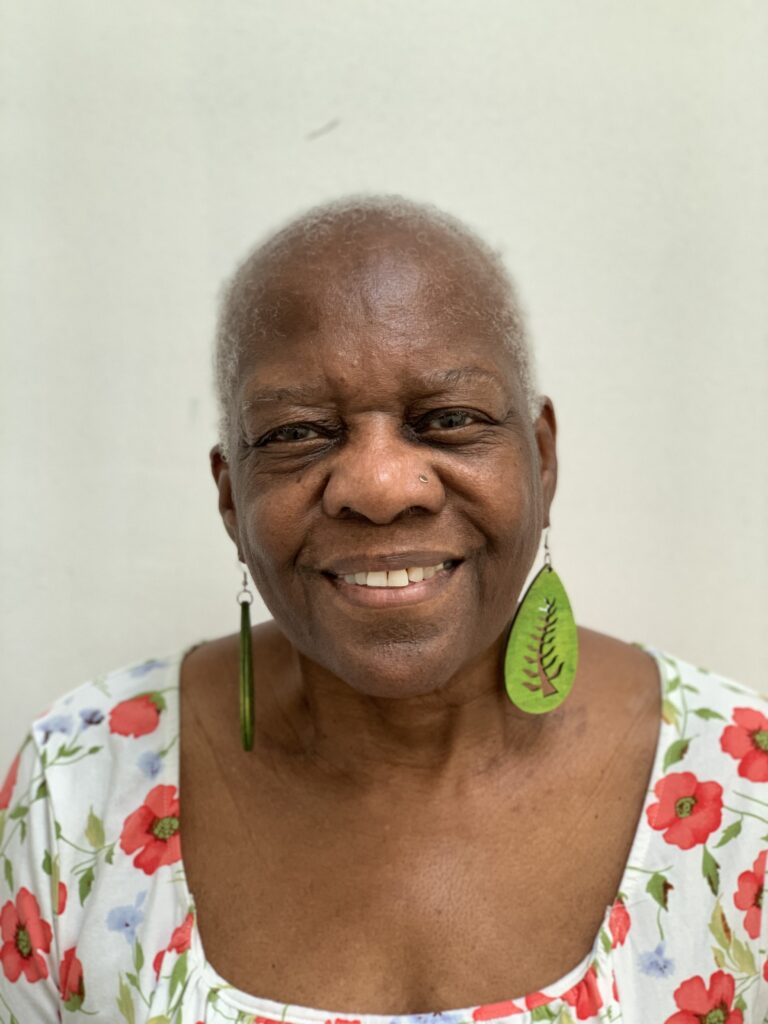
Fanny Brewster
Dreams and Ethnicity track Co-Director
Fanny Brewster, Ph.D., MFA, is a professor of Depth Psychology at Pacifica Graduate Institute. Her most recent writing includes The Racial Complex: A Jungian Perspective on Culture and Race and a forthcoming book on Africanist dreaming, Race in the Unconscious: Dreaming in Color (Routledge).

Jean Campbell
Advertising and PR Chair
Jean Campbell is an IASD Board member and Editor of IASD’s DreamTime magazine. She is the CEO of the nonprofit organization, The iMAGE Project and author/editor of several books including Group Dreaming: Dreams to the Tenth Power (Wordminder Press, 2006) and Sleep Monsters and Superheroes: Empowering Children through Creative Dreamplay (Praeger/ ABC-CLIO, 2016).
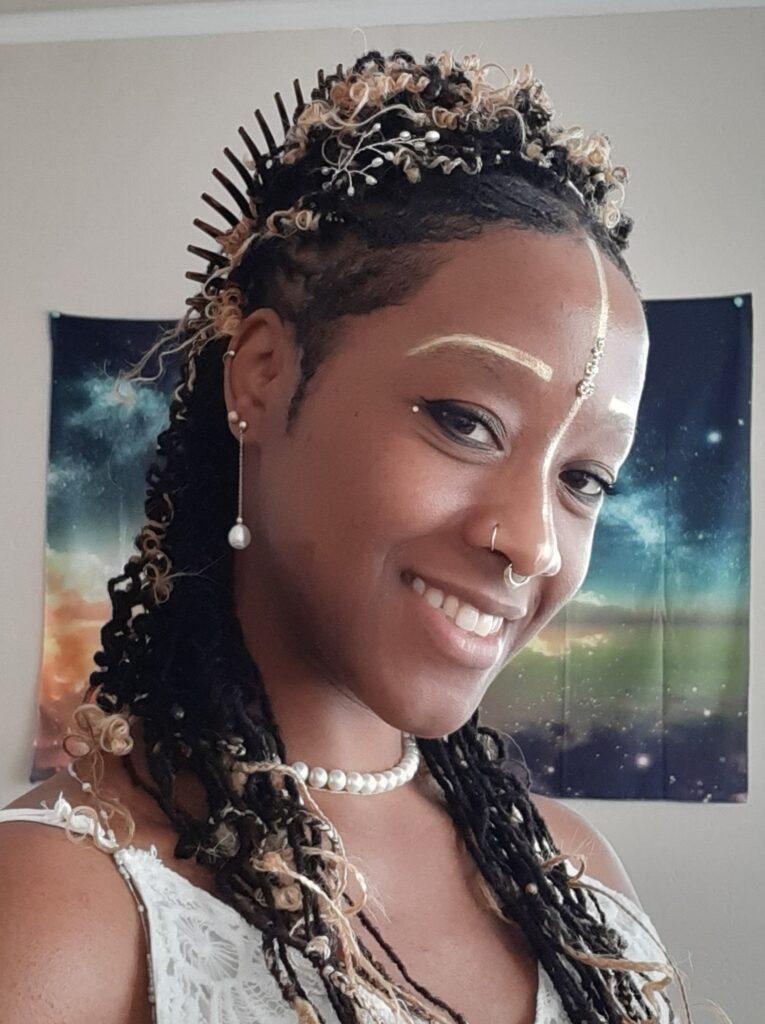
Alaya Dannu
Dreams and Ethnicity track Co-Director
Alaya Dannu, M.A., endeavors to illuminate the nature and importance of ancestral dreaming, its ability to enhance academic and scholarly inquiry, and bring awareness to a matrilineal tradition that has not been explored or discussed within the fields of dream research or women’s spirituality.
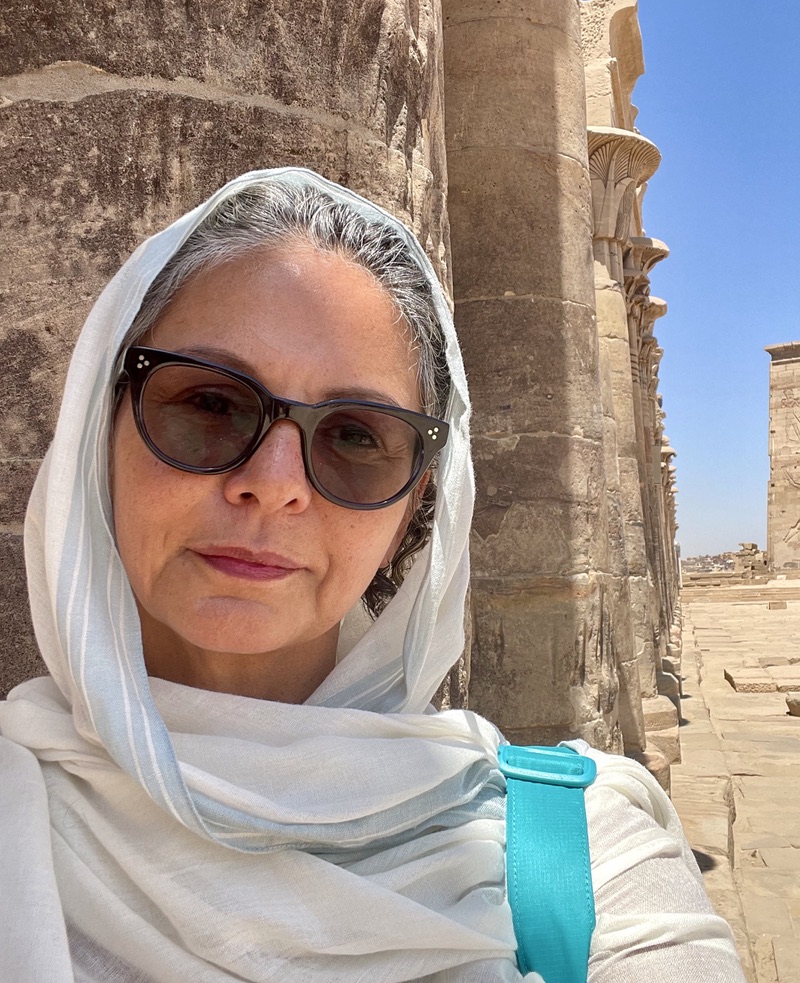
Katherine Lawson
Membership Co-Chair
Dr. Katherine Lawson is an Embodied Imagination ® dreamwork practitioner, a consultant and a counselor. She has spent nearly two decades examining the intersections between healing, dreaming, mysticism and psychedelics. She teaches and utilizes holistic therapies for PTSD and other types of unprocessed wounds. She has published Dreamwork for Growth and Healing: A Guided Dream Journal.
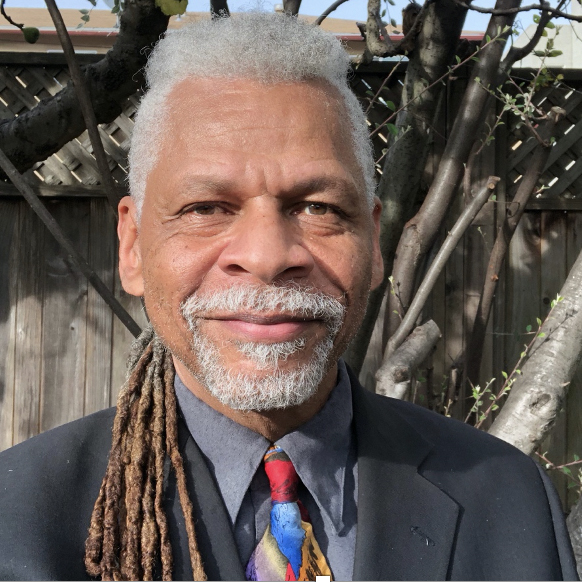
Victor Lee Lewis
Social Justice Educator
Victor Lee Lewis, MA, founder and director of the Radical Resilience Institute, is a speaker, consultant, Neuro-Linguistic Programming (NLP) practitioner, certified NLP hypnotherapist, Emotional Freedom Techniques (EFT) practitioner, and was in the award-winning documentary, The Color of Fear. He is co-author, with Hugh Vasquez, of Beyond the Color of Fear.
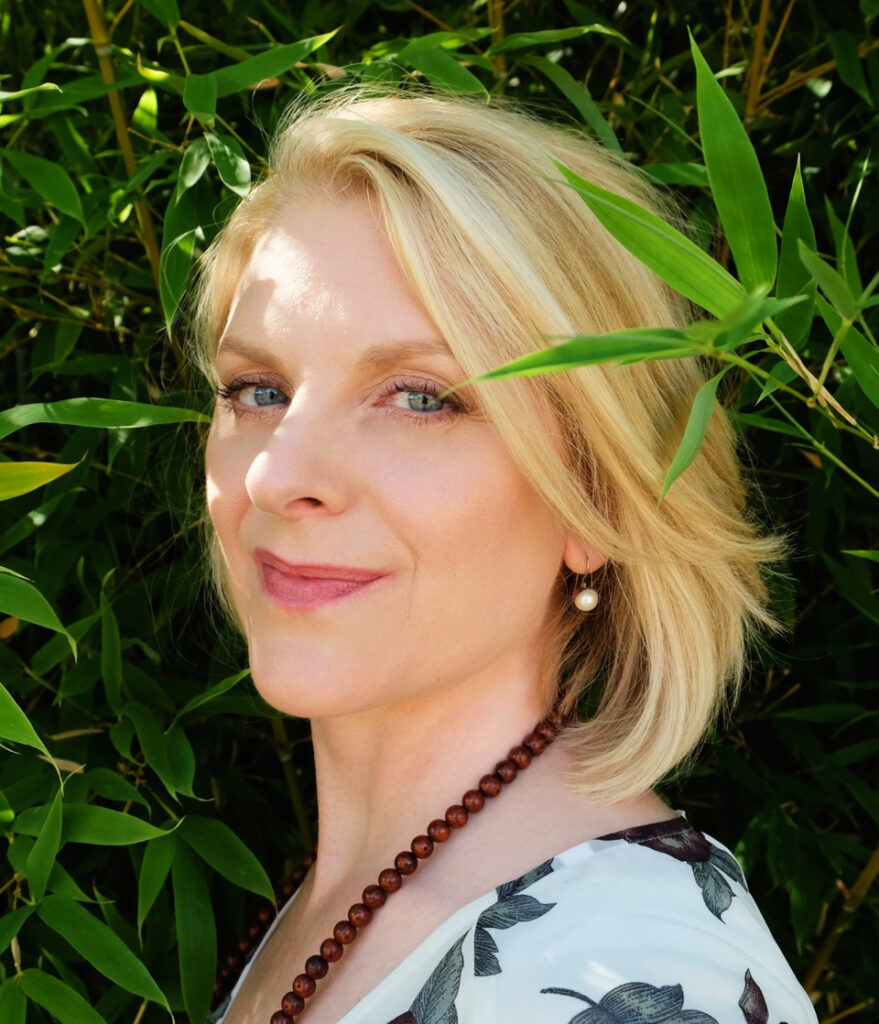
Angel Morgan
DAC Chair
Angel Morgan, Ph.D., Past President of the International Association for the Study of Dreams (IASD), is founder of Dreambridge, professor in Sofia University’s Institute of Transpersonal Psychology, and author of The Alphabliss of Miss, and Dreamer’s Powerful Tiger: A New Lucid Dreaming Classic for Children and Parents of the 21st Century.
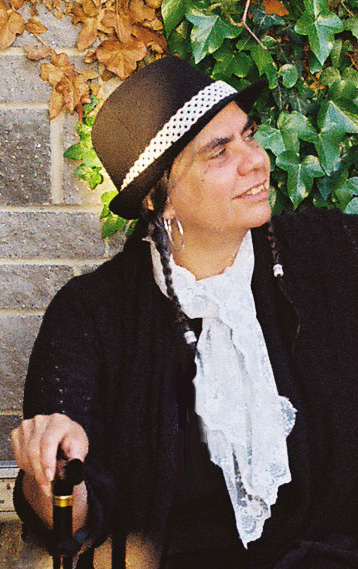
Dolores Nurss
Founder of the Culture-Keeper Membership
Dolores Jean Nurss, a freelance oneironaut, has presented on dreams for IASD, Mind/Body/Spirit Expo, and Fairy & Human Relations Congress, on multiple occasions each, and has hosted “The Outer Inn” throughout most of IASD’s PsiberDreaming Conferences.
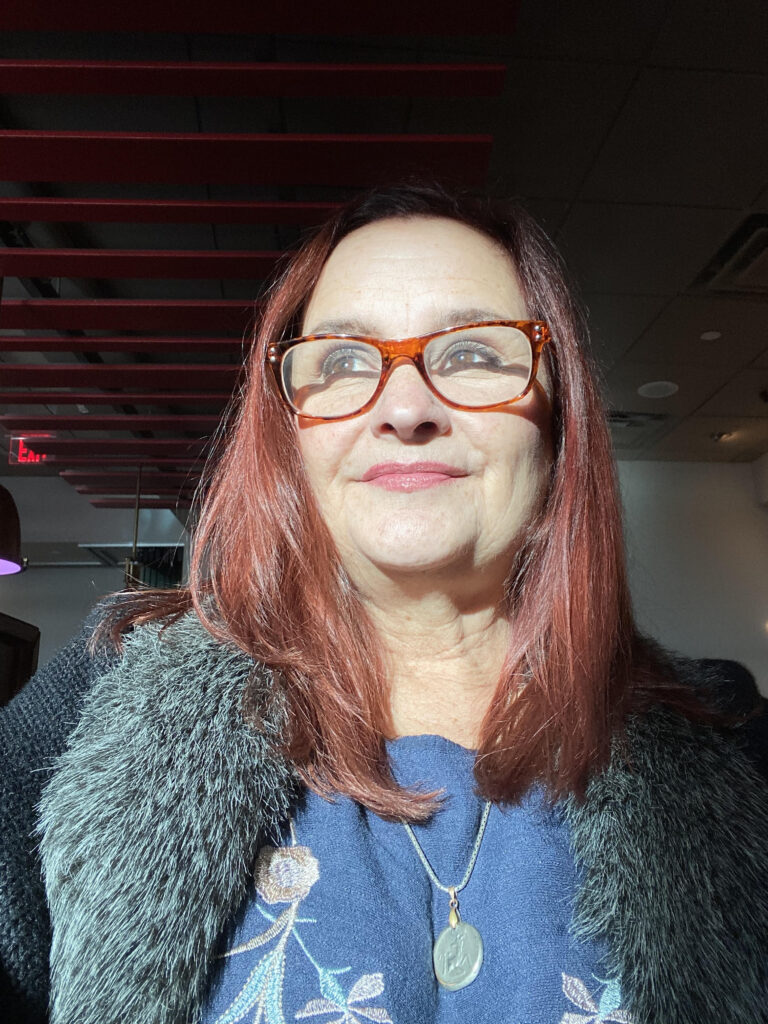
Valley Reed
DAC Member
Valley Reed has over 20 years of experience as a nonprofit leader and wellness entrepreneur. She is the Grants Manager for a Domestic Violence Agency awarded over $4 million in grants she wrote in 2023. She owns Chrysalis Healing Arts and teaches Collaborative Dreaming rooted in Ecofeminism, Animism, and Ancestral Healing.
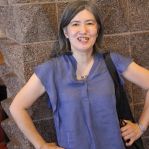
Misa Tsuruta
Membership Co-Chair
Misa Tsuruta, Ph.D., received her Ph.D. in Cognitive, Social and Developmental Psychology from the New School for Social Research. She has presented at many past IASD conferences and other conferences. Currently, she has a small practice of psychology in Tokyo, Japan. Her book the Multicultural Mind will soon be published (in Japanese).
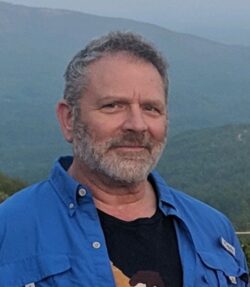
Bernard Welt
Dreams and Ethnicity Portal Archivist
Bernard Welt, Ph. D., is Professor Emeritus at the Corcoran School of the Arts and Design at George Washington University; a contributing editor of DreamTime; and co-author, with Phil King and Kelly Bulkeley, of Dreaming in the Classroom: Practices, Methods, and Resources in Dream Education (State University Press of New York).
Diversity Response
IASD’s “Diversity Response” email is diversityresponse@asdreams.org. This email reaches all DAC members as a group, and is a contact for complaints related to racial and ethnic identification in organizational activities. The DAC will work with the Executive and Ethics committees as needed. Diversity-related suggestions, requests, and kind words are also welcome at this address.
IASD DOCUMENTS ON DIVERSITY
- IASD Principles of Community
- IASD 2020 President’s Address setting goals for diversity and inclusion
- Information and updates on Diversity Training for IASD board and staff
IASD DIVERSITY FINANCES
I. Donate to IASD Diversity
Click here to Donate to IASD Diversity, and select this category:
IASD Diversity:
This category supports IASD’s pledge to grow an intentional inclusive process for Black, Indigenous, and People of Color (BIPOC) with expertise or interest in dreams, expand the ethnic diversity of the IASD, and increase the ethnic diversity of invited speakers at future conferences. It also supports programs such as Diversity training for the IASD Board and Staff, DEI dream research grants, BIPOC conference scholarships, and Culture-Keeper memberships.
II. IASD DEI (Diversity, Equity, Inclusion) Dream Research Grants
Intent
The intent of this grant is to help diversify the field of dream research by lifting up and amplifying the voices of dream researchers from ethnic groups that have been under-represented in dream research.
We all dream, and yet this fundamental human capacity manifests as infinitely diverse stories, experiences, forms of wisdom. The IASD DEI (Diversity Equity Inclusion) Dream Research Grants pursue IASD’s core mission of advancing multi-disciplinary dream studies and fostering awareness of the value of dreams in all lives.
We celebrate Diversity because we all benefit from research that explores every kind of dream experience, cultural context, and way of knowing; and from facilitating not only participation but leadership among every community and form of identity.
We commit to Equity because we know we must all examine our own assumptions and values whenever we evaluate a perspective that’s new to us; be mindful of historical and social contexts that have promoted some voices and views and diminished others; and learn new ways to make distribution of resources truly fair and accessible to all.
We embrace Inclusion because we have seen that everyone who undertakes to study dreams according to their own methodology, tradition, heritage, or experience has something of value to bring to all of us—just as dreamers do. This means we not only listen respectfully to researchers from all backgrounds, studying all relevant interests, but actively seek them out and support their work.
Funding
The annual IASD Pledge Drive features a category to designate contributions to our Diversity effort. DEI Dream Research Grants draw upon this dedicated funding line. The IASD Diversity Task Force Advisory Committee (DAC) is charged with soliciting dedicated contributions to Diversity.
Application format
To apply for a DEI Dream Research Grant, complete the application as instructed on this page of the IASD/Dream Science website, where you will include your response to this additional prompt:
The intent of this grant is to help diversify the field of dream research by lifting up and amplifying the voices of dream researchers from ethnic groups that have been underrepresented in dream research.
Please describe your background and accomplishments, educational and professional goals, and how this dream research grant can help you reach those goals. Please use this section to confirm your identity as a member of an ethnic group that has been underrepresented in dream research (for example, Black, Indigenous, or POC communities in the United States and Canada).
Application and approval process
IASD DEI Dream Research Grants constitute a special category following all criteria and definitions stipulated for all IASD Dream Research Grants, with particular attention to the aims stated above—to enhance Diversity, Equity, and Inclusion.
Applications for the DEI Research Grants are evaluated by the IASD Research Grant Board. Those meeting scientific qualifications are referred to a representative or representatives delegated by the DAC, who assess(es) the applicants’ responses regarding their experience as a researcher from an ethnic group that has been underrepresented in dream research, and offer(s) recommendations for DEI grants to the Dream Research Grant Board. Final decisions on awarding grants depend upon funds available through the Diversity pledges for the year.
III. IASD BIPOC Conference Scholarships and Grants
BIPOC Conference Scholarships and Grants
BIPOC conference grants reduce the annual conference fee to $180. A small number of BIPOC conference full scholarships are also available. To apply for a BIPOC conference grant or scholarship, write diversityresponse@asdreams.org
IV. IASD Culture-Keeper Memberships and OC Memberships
Click here for Culture-Keeper Memberships
IASD has designated low-cost Culture-Keeper annual memberships, in recognition of the special contributions to dream studies and dreamwork by carriers of authentic traditions transmitted by intergenerational ethnic communities, tribes, and sovereign Indigenous nations. Culture-Keepers preserve the most profound roots of our respect for dreams, dream study, and dreamworkers, often without the institutional recognition and financial compensation accorded to academic credentials, though their training is as rigorous and their knowledge as vital to the IASD mission.
Click here for Organization/Corporate (OC) Memberships
Did you know there is an IASD Organization/Corporate discount for tribes and communities that form NPOs for the preservation of their dreaming traditions? IASD supports tribes and community dream-groups within their own cultural context. Native American tribes, as well as many other groups around the world, prefer collective efforts over the dominant culture’s emphasis on individuality.
V. IASD Conference Volunteering
IASD Conference Volunteering
Love to Serve? We believe diversity among our volunteers and staff enhances the experience of the conference for everyone. Volunteering can be a way of asserting belonging; owning; co-producing. To get involved as an IASD conference volunteer, contact diversityresponse@asdreams.org.
VI. Ernest Hartmann Awards for Student Research
The DAC encourages student applications to IASD’s Ernest Hartmann Award for Student Research. These $500 Awards are given to students (undergraduate and graduate) in two areas: best original scientific (quantitative) research on dreams and dreaming; and best submission of original historical, literary, artistic, or theoretical (qualitative) research on dreams. Applicants must specify in which category their submission is to be considered. 5000-word maximum. Published research is not eligible. Enrolled undergraduate and graduate students are eligible to submit papers; applicants must include a copy of student ID with submission. There is a 5,000 word maximum for all submissions.
DEI Student Research Award
Intent
With the intent of promoting the IASD commitment to diversity, equity, and inclusion (DEI), an additional annual $500 award for quantitative or qualitative student dream research related to cultural diversity in particular has been added, that is open to student applicants who identify as members of ethnic groups that have been underrepresented in dream research.
Application Procedure
Submissions for this annual award, designated DEI Student Research Award, will follow the same procedure, requirements, and deadline as the existing awards for quantitative or qualitative research, with the addition of a short statement confirming the applicant’s identity as a member of an ethnic group that has been underrepresented in dream research. Applicants to the DEI Student Research Award will also be considered in the quantitative and qualitative award categories depending on the method of the student’s research.
These instructions will be added to the description of the 3rd Award:
For Applicants of the DEI Student Research Award, in a few sentences, please confirm your identity as a member of an ethnic group that has been underrepresented in dream research.
RESOURCES
The IASD Dreams and Ethnicity portal offers the following resources to encourage and inspire further understanding of authentic, culturally diverse dream traditions which have historically been overlooked and marginalized in academic studies until recently. Priority has been given to accounts and perspectives from within communities themselves. The intention is to address dreams and ethnicity globally. We welcome any and all suggestions for texts, videos, and websites that share directions for research into diverse, culturally-based dream traditions.
IASD does not preferentially promote institutes, courses, or centers for dreamwork, even as we acknowledge their importance in advancing our organizational mission.
Videos and Podcasts
From KSQD The Dream Journal with Katherine Bell
“Ancestral Healing Dream.” Angel Morgan’s song emerged from an IASD Board Zoom event facilitated by Victor Lee Lewis.
Brewster, F. (2019) This Jungian Life podcast: “The Racial Complex”
Brewster, F (2019). This Jungian Life podcast: “We Can’t Breathe: Facing the Pain of Racism”
“Healing the Soul Wound.” A Zoom Conversation with Dr. Eduardo Duran
Power of Dreams – Native American Dreaming
“The Seven Great Mothers Reveal Themselves.” Conversation with Diya Prajnaparamita
Publications
Adams, M. V. (2002). African American dreaming and the beast of racism: The cultural unconscious in Jungian analysis.
Article on the embodied appearance of racial trauma in dreams.
Adams, M. V. (2006). The Islamic Cultural Unconscious in the Dreams of a Contemporary Muslim Man. Journal of Jungian Theory and Practice, 8(1), 31–40.
On the importance of awareness of culturally inherited themes in dreams.
American Psychological Association (2008). Indigenous peoples: Promoting psychological healing and well-being. APA special section.
A wide variety of perspectives from Indigenous people on the cultural foundations of psychological health.
Bain, B. (2020). Dreams and identity in Indigenous California [Doctoral dissertation, Pacifica Graduate Institute]. ProQuest Dissertations Publishing.
Bernstein, J. S. (2014). Non Shamanic Native American healing. Psychological Perspectives, 57(2), 129-146.
Article on American Indigenous dreamways that do not involve shamanic practices.
Brewster, Fanny. (2023). Race and the Unconscious: An Africanist Depth Psychology Perspective on Dreaming. Routledge.
This vital revision of Jungian archetypal theory is rich in insights derived from clinical practice as well as provocative original thought, steeped in Africanist wisdom and liberated from Eurocentric premises. A landmark work for dream studies. onlimne
Brewster, F. (2004). The dreams of African American women: A heuristic study of dream imagery (Publication No. 3417869) [Doctoral dissertation, Pacifica Graduate Institute]. ProQuest Dissertations Publishing.
A study of personal and archetypal elements in the dreams of African American women found concerns about family, community, and enduring themes from African cultures.
Brewster, F. (2013). Wheel of fire: The African American dreamer and cultural consciousness. Jung Journal: Culture and Psyche 7(1).
On the importance of a positive orientation to multicultural consciousness, in contrast to earlier ethnocentric views.
Bulkeley, K., & Schredl, M. (2022). Dreams, race, and the Black Lives Matter movement: Results of a survey of American adults. 71, 29-41. https://doi.org/10.1007/s11089-021-00986-x
A study of the impact of the BLM movement on the dreams of a wide and diverse sample of Americans.
Bynum, E. B. (2017). The dreamlife of families: The psychospiritual connection. 2nd ed. Inner Traditions.
How ancient inheritances appear in the shared dreamlife of contemporary families.
Bynum, E. B. (2021). The African origin of familial consciousness and the dynamics of dreaming. Dreaming 31 (2), 91-99. https://doi.org/10.1037/drm0000171
Dannu, A. (2019, September). Ancestral dreaming and why it needs to be a part of the dream studies conversation. In J. Campbell (Ed.), Dreamtime Magazine. 36(3), 12-13.
An argument for the recognition of ancestral dreaming as a vital factor in the spiritual dimension of dreams.
Duran, E., & Duran, B. (1995). Native American postcolonial psychology. SUNY Press.
Offering an understanding of the role of inherited trauma and oppression in post-colonial psychology.
Duran, E. (2000). Buddha in redface. 3rd ed. Writers Club Press.
A narrative of the confrontation of Western and Indigenous ways of knowledge in healing and dreaming.
Duran, E. (2012). Medicine wheel, mandala, and Jung. Spring #87, Native American cultures and the Western psyche: A bridge between, 125-153.
Similarities and differences between Jungian and Native American shamanic approaches to healing and dreaming.
Duran, E., & Firehammer, J. (2015). Story Sciencing and analyzing the silent narrative between words: Counseling research from an Indigenous perspective. In R. D. Goodman, & P. C. Gorski (Eds.), Decolonizing “Multicultural” counseling through social justice (pp. 85-97). Springer.
Important political and practical dimensions to community-based dream research and other research in Indigenous culture.
Duran, E. (2019). Healing the soul wound: Trauma-informed counseling for Indigenous communities, 2nd Edition. Teachers College Press.
Directions in dreamwork with Native American peoples, recognizing traditional cosmology and worldview.
Elliott, N. (2013). Catching dreams: Applying Gestalt dream work to Canadian Aboriginal peoples. First Peoples Child & Family Review: An Interdisciplinary Journal Honouring the Voices, Perspectives, and Knowledges of First Peoples through Research, Critical Analyses, Stories, Standpoints and Media Reviews, 7(2), 34-42.
Argument that Gestalt dream work connects well with Canadian First Nations people due to shared premises regarding the nature of self and world.
Gackenbach, J. (1996). — Thoughts about dreamwork with central Alberta Cree. http://www.sawka.com/spiritwatch/thoughts.htm Jayne Gackenbach, the influential and tireless researcher of lucid dreams, co-led a workshop with a Cree dreamworker at the Yellowhead Tribal Council in Edmonton, Alberta. Her own dreams were changed, and she learned that dreaming could be a vehicle for social action.
Garcia, E. (2019). Skins of Columbus: A dream ethnography. Fence Books.
A distinctive hybrid of memoir, poetry, cultural history, dream record, and critique of dream theory.
Glaskin, K. (2005, June.) Innovation and ancestral revelation: The case of dreams. Journal of the royal anthropological institute, 11 (2). 2,297-314. https://doi.org/10.1111/j.1467-9655.2005.00237.x A study of the relevance of ancestor dreams—often associated with sacred ritual—to everyday activities among Indigenous Australians, providing some models for methodology.
Harjo, J. (2012). Crazy brave: A memoir. Norton.
US Poet Laureate recounts her personal history of overcoming trauma, guided by dreams.
Hill, M. O., & Mandaza A. K. (2004). The village of the water spirits: The dreams of African Americans. Spring Publications.
Researching African American dreams, Hill was drawn to Kandemwa, a Shona shaman, to explore the resonance of African dreams.
Irwin, L. (1994). Dreams, theory, and culture: The Plains vision quest paradigm. American Indian Quarterly, 18(2). 229-245.
An exploration of the cultural importance of the vision quest and dreams within American Plains Indigenous culture.
Irwin, L. (1996). The dream seekers: Native American visionary traditions of the Great Plains. University of Oklahoma Press.
An analysis of the content and social function of visionary dreams within American Plains Indigenous culture.
Jaenke, K. (2006, Spring.) Dreaming with the ancestors. ReVision, 28 (4). https://www.academia.edu/38254497/Dreaming_with_the_Ancestors An introduction to ancestral dreaming, categorizing four types with examples.
Jøregensen, N. H. B. (2020). The function of dreams in Syl Cheney-Coker’s fiction. Research in African literatures, 50(4), 108-120.
Cheney-Coker (Sierra Leone/USA) is widely respected as both a poet and novelist, praised for preserving and updating West African cultural traditions.
MacColl, T. (2008, September 5.) Dreaming with the Ancestors. International Association for the Study of Dreams, Psiber-Dreaming Conference https://library.wisn.org/wp-content/uploads/2016/12/130152-Dreaming-With-the-Ancestors.pdf Discussion of the emergence of traditional Indigenous cultural material in dreams, with consideration of themes in ancestral dreaming worldwide.
Mageo, J, & Sheriff, R. E., eds. (2020). New Directions in the Anthropology of Dreaming. Routledge.
Valuable set of papers mainly on the study of diverse cultures’ dream theories as a means of subverting colonialist biases.
Mock, Shirley Boteler (2010). Dreaming with the Ancestors: Black Seminole Women in Texas and Mexico. University of Oklahoma Press.
African, Seminole, and Indigenous Mexican traditions merge among visionary women in the Southwest US and Mexico. An anthropological study with the vividness and immediacy of a novel.
Morgan, A. K. (2014, December). Dream sharing as a healing method: Tropical roots and contemporary community potential. Journal of Tropical Psychology, 4, e12 doi:10.1017/jtp.2014.12.
A variety of community methods of dream sharing in Indigenous and other cultures can contribute to healing.
Morgan, A. (2020, September). IASD’s president’s address: Deeply listening. In J. Campbell (Ed.), Dreamtime Magazine. 38(3), 7-9.
IASD President’s address 2020 restates organizational commitment to openness and diversity.
Morse, Gayle Skawen:nio and Vicky Tsinnijinnie (2020). Understanding Indigenous Perspectives: Visions, Dreams, and Hallucinations,). Cognella Academic Publishing.Offers practicing psychotherapists guidance in situating clients’ needs within worldviews of American Indian, Native Alaskan, and Native Hawai’ian communities.
Morse, G. S. & Lomay, V. T. (Eds.) (2020.) Understanding Indigenous perspectives: Visions, dreams and Hallucinations. Cognella. Primarily a cultural guide for therapists, to assist in distinguishing among types of vision experience among Indigenous peoples of the Americas.
Nwoye, A. (2017, Jan.) The psychology and content of dreaming in Africa. Journal of Black psychology, 43 (1). https://journals.sagepub.com/doi/abs/10.1177/0095798415614159 The author explores African perspectives on dreaming through examples, demonstrating the concept of dreaming for others.
Peluso, D. M. (2004). That which I dream is true: Dream narratives in an Amazonian community. Dreaming, 14(2-3), 107–119. https://doi.org/10.1037/1053-0797.14.2-3.107 Explains how dreaming practices can be the key to understanding and respecting diverse concepts of selfhood and the relation of the individual to the social world.
Pickering, J. (2012). Bearing the unbearable: Ancestral transmission through dreams and moving metaphors in the analytic field. Journal of Analytical Psychology, 57(5), 576-596.
A paper arguing that contemporary healing dream work can address historical traumas unacknowledged and unresolved by dominant culture.
Seligson, F. J. (1989). Oriental birth dreams. Hollym.
Seligson’s collection of t’aemong, Korean birth dreams, offers his comments on the aesthetic and psychological dimensions of dream accounts.
Shafton, A. (1991). Why so few Blacks in the dream movement? ASD Newsletter 8(4):1, 12-14.
A statement on how dream organizations need self-examination to extend diversity and inclusion.
Shafton, A. (2002). Dream singers: The African American way with dreams. Wiley.
A study of dream themes, dream practices, and dream theory in African American communities.
Shafton, A (2003). African Americans and predictive dreams. DreamTime Magazine.
Short report on an extensive study of African American dreamers, finding that predictive dreams are not attributed to a psychic “faculty of mind,” but a state of spiritual awareness.
Shawanda, A. (2020). Baawaajige: Exploring Dreams as Academic References. Turtle Island Journal of Indigenous Health, 1(1), 37–47. https://doi.org/10.33137/tijih.v1i1.34020
How are we to acknowledge the contributions of Indigenous Dream Knowledge in the academy, where influential study of culture is so often done? This article offers proposals on methodology, metapsychology, and academic citation.
Shawanda, A., & Manitowabi, J. (2023). Anishinaabe Dream Methodology. Turtle Island Journal of Indigenous Health, 1(3). https://doi.org/10.33137/tijih.v1i3.38566
A vital argument for the place of Indigenous Ways of Knowing in dream research, in some ways opposing, in others expanding the extant approaches of academic anthropology.
Shawanda, A. (2023). Nda-nwendaaganag (All My Relations): A relational approach to citation practices. Turtle Island Journal of Indigenous Health, 1(3). https://doi.org/10.33137/tijih.v1i3.38567
This article proposes that, undertaken with the proper ritual and spiritual preparation, the “All-My-Relations” approach in Indigenous understanding (specifically Anishinaabe) can expand the limited perspectives of Western cultural study.
Spellberg, M. (2020) On dream-sharing and its purpose. https://www.cabinetmagazine.org/issues/67/spellberg1.php Cabinet 67. Wide-ranging consideration of social functions of dreaming across many cultures.
Spindler, G., and Spindler, L. (1984). Dreamers with power: The Menominee. Waveland.
A study of cultural adaptation to European American incursion through dreams and dream practices.
Tedlock, B. (1992). (Ed.). Dreaming: Anthropological and psychological perspectives.
Contributions to the cross-cultural study of dreams and dream practices, with important statements on methods of study.
Tedlock, B. (2004). The poetics and spirituality of dreaming: A Native American enactive theory. Dreaming, 14, 183-189.
Anthropological study of the spiritual dimension of dreaming in Native American societies.
Todd, K. L. (2019). Shedding of the colonial skin: The decolonial potentialities of dreaming. In Decolonizing the spirit in education and beyond (pp. 153-175). Palgrave Macmillan, Cham.
An argument that attention to the inner world of dreams can help Indigenous people identify internalized colonialist culture.
Tsuruta, M. (2005). Dreaming in Japan: An introduction to dream practices and dream-related arts in ancient, medieval and modern Japan. DreamTime, 22, 16-19.
Historical consideration of the continuity of dream practices in Japan.
Tsuruta, M. (2016). Dream-related folk tales in Japan. DreamTime, 33(3), 20-21.
Dreams in Japanese folk and literary narrative.
Tsuruta, M. (2016). Cultural differences and similarities in dreams and personal narratives: A comparison between American and Japanese undergraduate and graduate students. (Doctoral Dissertation.)
Extensive comparative study of elements in the dreams of Japanese and US students.
White, J. W. (2017). Midnight in America: Darkness, sleep, and dreams during the Civil War. UNC Press. Extensive comparisons of dreams and sleep deprivation among American slaves, White soldiers, and free African Americans during the Civil War years, suggesting patterns that may endure.
Exercises
In the International Association for the Study of Dreams Facebook Group, search “Dolores Nurss dream incubation exercise”
WEBSITES / ORGANIZATIONS
The Museum of Dreams
https://www.museumofdreams.org/
The extraordinary site is described as “a hub for exploring the social and political significance of dream-life. We collect and creatively work with dreams from the historical record . . . to identify and integrate what Toni Morrison named the ‘unspeakable things unspoken.’ Dream-life provides a venue to think through these difficult, otherwise unrepresentable aspects of our social lives.”
CONTACT US
The IASD Dreams and Ethnicity Media and Research Portal encourages and reflects a commitment to diversity of perspectives on dreaming that is essential to the identity of our organization. We enthusiastically welcome suggestions for additions or revisions to this webpage, which may be emailed to: diversityresponse@asdreams.org Suggested additions to Resources may be sent directly to D&E portal editor: bernardwelt@gmail.com
